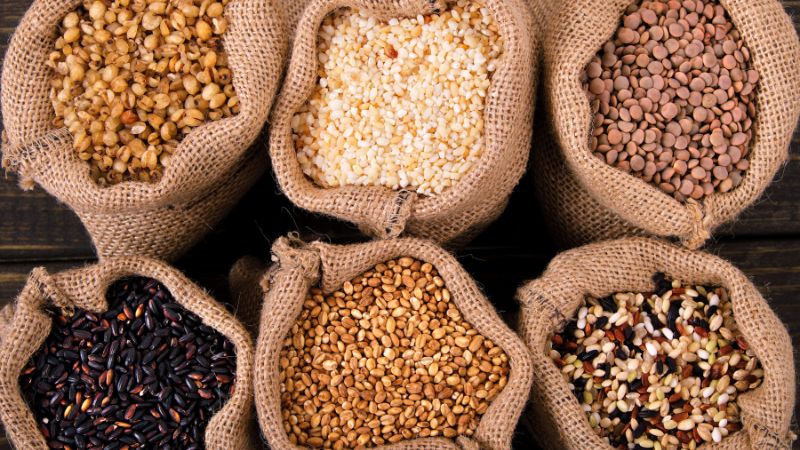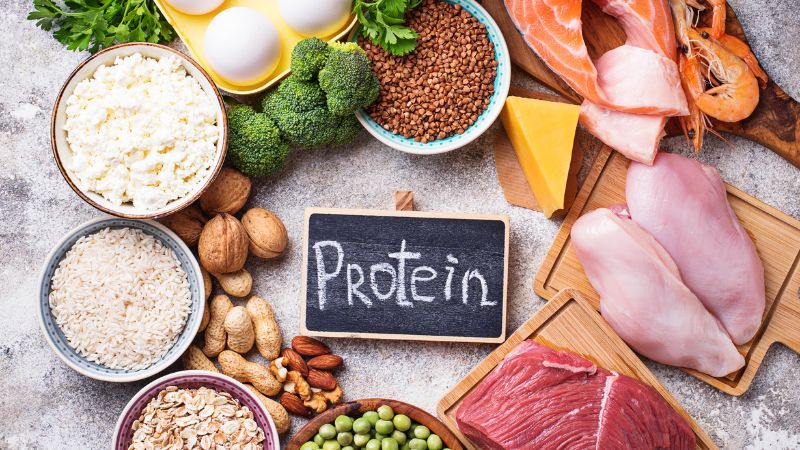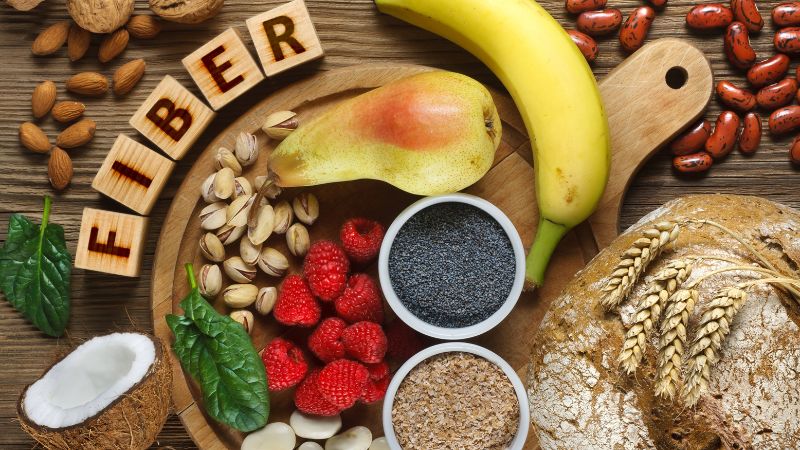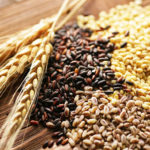For women going through menopause, managing weight and maintaining overall health can be challenging. Here are 10 tips to help navigate this phase healthily and effectively:
1 Cut Down on Sugary Drinks
The first step to managing your weight and improving your health during menopause is to eliminate sugary drinks from your diet. Replace sugar-laden beverages with water, herbal tea, or natural mineral water with a slice of lemon.
According to sports nutritionist Destini Moody (Garage Gym Reviews, USA), women going through menopause have a harder time processing carbs. Sugary drinks cause a sudden spike in blood sugar, leading to increased appetite and calorie intake. Moreover, these drinks are high in calories but low in nutritional value, making the situation worse.
 Limit sugary drinks
Limit sugary drinks
2 Incorporate Resistance Training
Including resistance training in your daily routine is key to building muscle mass and boosting your metabolism, helping you burn more calories even at rest.
As explained by sports nutritionist Destini Moody, after the age of 30, our muscle mass naturally tends to decrease. This muscle loss can be as high as 8% per decade and is accelerated during menopause due to declining hormone levels. However, the good news is that resistance training can help counteract this loss, offering multiple health benefits:
-
Boosted metabolism: Muscle tissue burns more calories than fat, so having more muscle means your body will burn more calories even when you’re not active.
-
Reduced risk of chronic diseases: Resistance training lowers the risk of chronic conditions such as heart disease, type 2 diabetes, and osteoporosis.
-
Improved mental health: Exercise is proven to enhance mood and reduce stress levels.
 Incorporate resistance training
Incorporate resistance training
3 Get Enough Sleep
In addition to regular exercise and a healthy diet, getting sufficient sleep is crucial for weight management, especially for menopausal women.
Research suggests that sleep deprivation can lead to weight gain, obesity, a slower metabolism, and an increased risk of chronic diseases. Sports nutritionist Destini Moody explains that the combination of sleep deprivation and changing estrogen levels during menopause can impact how the body burns fat, resulting in fat accumulation.
 Get enough sleep
Get enough sleep
4 Eat More Whole Grains
According to a 2022 scientific study published in the Journal of Food Science & Nutrition, whole grains offer numerous health benefits, particularly in stabilizing blood sugar levels and aiding weight control.
Here are some healthy whole grain options:
-
Brown rice: Rich in vitamin B, fiber, and minerals, brown rice is beneficial for cardiovascular health and digestion.
-
Oats: Contain beta-glucan, a type of fiber that helps lower cholesterol and supports gut health.
-
Whole wheat pasta: Provides energy and is rich in fiber and vitamin B, which is essential for the nervous system.
 Eat more whole grains
Eat more whole grains
5 Reduce Stress Levels
Chronic stress not only affects mental health but also increases the risk of weight gain, especially around the abdomen. This is because stress triggers the production of cortisol, the stress hormone, which leads to fat accumulation, particularly in the abdominal area, resulting in uncontrolled weight gain.
Nutritionist Gianna Masi recommends combining a healthy diet and regular exercise with relaxation techniques to effectively manage stress levels.
 Reduce stress levels
Reduce stress levels
6 Increase Quality Protein Intake
Protein is essential for maintaining muscle mass, which tends to decline with age and especially during menopause. According to nutritionist Gianna Masi, adequate protein intake, combined with resistance training, offers several benefits for menopausal women:
-
Preservation of lean body mass: Protein helps build and maintain muscle tissue, counteracting age-related and hormone-related muscle loss.
-
Enhanced metabolism: Protein has a higher thermic effect than fat and carbohydrates, meaning the body burns more calories during digestion, supporting weight loss and a balanced physique.
-
Appetite control: Protein promotes satiety, reducing the risk of overeating and snacking, thus aiding weight management.
It is essential for menopausal women to include protein in every meal. Some healthy protein sources include:
-
Lean meats: Chicken, turkey, beef, tuna, etc.
-
Eggs: A complete protein source, providing all the essential amino acids.
-
Dairy products: Milk, yogurt, cheese, etc.
-
Soy products: Tofu, soy milk, edamame, etc.
-
Legumes: Lentils, chickpeas, beans, etc.
 Increase quality protein intake
Increase quality protein intake
7 Increase NEAT Activities
NEAT (Non-Exercise Activity Thermogenesis) refers to the calories burned through everyday activities like walking, moving around, and doing household chores.
According to nutritionist Gianna Masi, increasing NEAT activities offers several benefits for menopausal women, especially in weight management:
-
Increased calorie burn: NEAT contributes to burning extra calories in addition to those expended during structured exercise, helping with weight control.
-
Reduced risk of fat accumulation: NEAT helps the body burn calories continuously, preventing fat accumulation, especially around the abdomen.
-
Improved physique: Increasing NEAT leads to a firmer, more toned, and energetic body.
To boost NEAT during menopause, consider the following simple strategies:
-
Change your movement habits: Take the stairs instead of the elevator, walk or cycle whenever possible, and move around frequently at home or in the office.
-
Engage in physical activities: Participate in household chores like cleaning, gardening, and cooking.
-
Change your posture: Avoid sitting for long periods, stand up and move around often, and practice simple stretching exercises at your workplace.
-
Incorporate playful activities: Engage in enjoyable activities like walking, shopping, or dancing.
8 Eat More Fiber
Fiber is crucial for promoting a healthy digestive system and aiding weight management, especially for menopausal women.
Benefits of fiber:
-
Improved digestive health: Fiber promotes regularity, aids in digestion, and prevents constipation.
-
Appetite control: Fiber induces a feeling of fullness, helping you avoid overeating and snacking, thus supporting weight control.
-
Reduced disease risk: Fiber lowers bad cholesterol, supports cardiovascular health, and reduces the risk of chronic conditions such as diabetes, heart disease, and cancer.
Menopausal women should aim for at least 25 grams of fiber per day to support their health and weight management goals.
 Eat more fiber
Eat more fiber
9 Maintain Consistent Meal Times
Sticking to a consistent eating schedule with 3 main meals and 1-2 healthy snacks daily offers multiple health benefits, especially for menopausal women.
Benefits of consistent meal times:
-
Blood sugar control: Regular meals help maintain stable blood sugar levels, reducing the risk of diabetes and cardiovascular complications.
-
Reduced appetite: Smaller, more frequent meals help control hunger and prevent overeating and snacking, aiding weight management.
-
Boosted metabolism: Consistent meal times improve the body’s metabolism, leading to more efficient calorie burning and supporting weight loss.
-
Improved mood: Stable blood sugar levels contribute to a better mood and lower risk of anxiety and depression.
Tips for consistent eating:
-
Plan your weekly meals to ensure a balanced diet and regular eating times.
-
Prepare healthy snacks to avoid unhealthy snacking.
-
Eat slowly and chew your food thoroughly to allow your body to register fullness.
-
Avoid skipping meals, especially breakfast.
-
Stay hydrated by drinking enough water throughout the day.
 Maintain consistent meal times
Maintain consistent meal times
10 Avoid Alcohol
According to nutritionist Gianna Masi, alcohol is a calorie-dense beverage that can lead to various health issues, especially for menopausal women:
-
Increased risk of weight gain: Alcohol is high in calories but lacks essential nutrients. Regular consumption can lead to fat accumulation, especially around the abdomen.
-
Reduced appetite control: Alcohol can lower inhibitions, leading to overeating or unhealthy food choices.
-
Impaired muscle recovery: Alcohol can inhibit protein synthesis, slowing down muscle recovery after workouts and limiting muscle growth.
During menopause, women often experience muscle loss due to changing hormone levels. Building and maintaining lean body mass is crucial for health and physique. However, regular alcohol consumption can hinder this process, making it challenging to achieve your health and fitness goals.
This article has provided valuable insights into common health and fitness concerns during menopause, along with simple yet effective strategies to manage weight, maintain a balanced physique, and improve overall health.
Source: Sức khỏe và Đời sống Newspaper
Combat Stress with These 6 Foods
Ease your worries and enhance your well-being with these 6 “superfoods.” The 21st century has certainly introduced a host of stressful situations, but incorporating these nutritious meals into your routine can provide quick relief and greater contentment. Find out how these healthful eats can help you live healthier and happier.
Protect Your Family’s Health with Nutritious Nestlé Fitnesse Cereals
 Health with Nutritious Nestlé Fitnesse Cereals’>
Health with Nutritious Nestlé Fitnesse Cereals’>Nestlé Fitnesse nutritious cereal is the perfect choice for a balanced, nutrient-rich breakfast. Discover more about Nestlé Fitnesse products in this article.


































